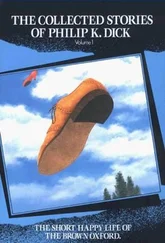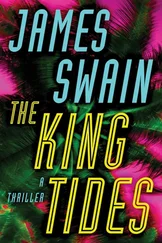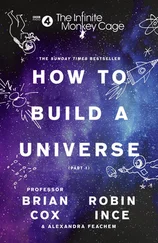Mullins called again soon after Sally Erler and again he let the call go to voice mail. He could not have explained why he did not want to take the call but knew he did not want to talk to Mullins or Eriksson or anyone from NASA, at least not until the house was tented and he knew what he was doing next. He imagined that they were dismantling his office, pulling out the furniture for the next astronaut to occupy, that they had already reclassified him into some other position that would require him to move to a different building entirely. Such were his nightmares. He wondered how far he had fallen and he did not want to know. Not yet. He would have to be out of the house starting tomorrow or the next day, depending on when they tented the house and filled it with poison. He knew he should call the home office but there was also a sense of irritation at the phone calls. They had ejected him from Houston; let them wait a few days for his return call. He had trained himself to think only of the future, had started that training on his own when he was in grade school and he thought he had actually reached the future he had been made for. And maybe he had, at least for that brief moment. The cold fact was that each time Mullins or Eriksson called he thought not of the future but of the past and there was nothing there but his failed marriage and Quinn’s death.
He thought that he should just find some deep recess in the house somewhere — the attic or the crawl space under the stairs — and let them tent the house around him, an idea that left him with a sense of outrage that shivered through him like an electric knife, leaving him raging in silence at the kitchen table, the shadow of the idea remaining under his tongue like a sharp and terrible stone.
He stood and opened the sliding glass door and stepped out onto the concrete patio under the blazing late-afternoon sun and waited for the feeling of unease to pass. His heart beat heavy in his chest and indeed there was the faint whine of his migraine now, the first time he had heard that sound in several weeks, his eyes already clamping shut against the light of the sun as he scuttled back through the sliding glass door sideways like a crab.
At the sink he swallowed a pill and drank from one of the chipped mugs Barb had left behind, and after a time he leaned into the sink itself and splashed cold water against his face. His heart continued to thump in his chest but perhaps not as insistently as it had only a few minutes before. The whine more distant? He was not sure. He thought he should probably get out of the house for a few hours, if for no other reason than to stop staring at the same blank walls, but when he finally looked at the cover of the newspaper he immediately sat at the kitchen table and all thoughts of the house and the poison and the termites flooded out of him all at once.
There it was at last: the earthbound comet on the front page.
Shit.
He had watched its approach through the columns of newsprint, its great parabola of gravitational motion swinging it back and forth through the pages, sometimes disappearing altogether and then appearing in some back section, once even in the Sunday magazine that nestled amid the full-color advertisement inserts. And now here it was on the cover, with a photograph and a block headline at the top of its column reading: “Comet to Hit Earth?” It was a headline as if from a tabloid. He wondered where Peter was right now, if he yet knew that the comet had finally become real news. Surely he was well aware already.
He read the column and flipped to the next page where the story continued. A one-in-a-million chance of strike. A greater chance of winning a major metropolitan lottery jackpot. One scientist quoted as calling the whole thing a knee-jerk reaction to something astronomers see all the time: objects moving in various trajectories all over the solar system. Difficult to track them all. With the proper funding they could dedicate more time and effort to it, but the economy was terrible. A call for additional funding for tracking and various technologies. Peter had intimated that Keith might know more about the capabilities of NASA to ward off a comet strike but if there were missiles that could explode any object that came blasting through the outer planets on its trajectory toward Earth, he did not know about them. He could likely create the math for this kind of scenario but beyond that there was little he could do.
If the comet’s impact had any sense of urgency beyond the talking of politicians and occasional scientists he also had no idea. He wondered if there was any talk of it at NASA, if the people he knew there were joking about it as they went about their daily work, the regular public being at some disconnect from the realm of scientists, physicists, mathematicians, and, yes, astronauts. The universe a mechanism with more moving parts than could ever be calculated but the chance of any given part colliding with any other given part infinitesimal. His greatest achievement had been the robotic arm. What good was that against the actual universe?
The morning had returned to the firestorm of heat that he thought had ended a month previous, the air humid and stagnant and lying upon the cul-de-sac as if to press everything to a motionless stop. The whining sound of the previous day had ceased at some point during the night, apparently obliterated by slumber and painkillers. What remained was only exhaustion: his mouth a burning, cotton-filled hole and his body creaking in the late-morning sunlight.
He lifted the newspaper from the step and stood in the doorway, glancing at the headline and noting that there was no further mention of the comet, at least not on the front page. The lack of news was disappointing if only because the comet had become a momentary excitement, now apparently already over.
The two suitcases had been repacked with the same clothes he had taken on his mission and these sat at his side in the doorway. The remainder of his clothes had already been packed into two cardboard boxes and had been stowed in the trunk of the rental car. As for the rest of it: he did not know what he would do with the bed but he would likely leave the cheap table and chair behind or take them out to the curb for whoever might happen by. Perhaps they would travel to the location of the sofa and some family would eat their cereal at the table each morning. The thought gave him some sense of pleasure.
On the street before him, various workers from the pest company were busy removing equipment from the trucks and vans lined up along the cul-de-sac. He had been told that the tenting process would take three days, after which the contractor would return to give him a proper estimate for repairing the damage. For now, he would stop in at Starbucks with his newspaper and then would drive across the freeway to the long string of hotels. He would rent a room for three days; beyond that period stretched an infinite field of blank space. He could return to the house, of course, but it would be undergoing major reconstruction to repair the termite damage, and once that was complete the escrow would be over and the new owners would move in. It made more sense to simply remain in a hotel. Somewhere. Maybe it was time to fly out to Atlanta and look at his daughter’s grave, but what purpose could that possibly serve? Her name engraved on a stone. An immaculate expanse of green lawn. What else? Silence everywhere on Earth.
He opened the trunk and dropped the black suitcase and its matching overnight bag into the vacancy beside the cardboard boxes of his clothes. There rested all the possessions he would retain. He might have needed a moving truck had he simply opened his mail and paid the storage unit bill but of course he had not done so. And there had been only one box in the storage he had any real desire to open or possess anyway and it was the only one he could never replace.
Читать дальше












